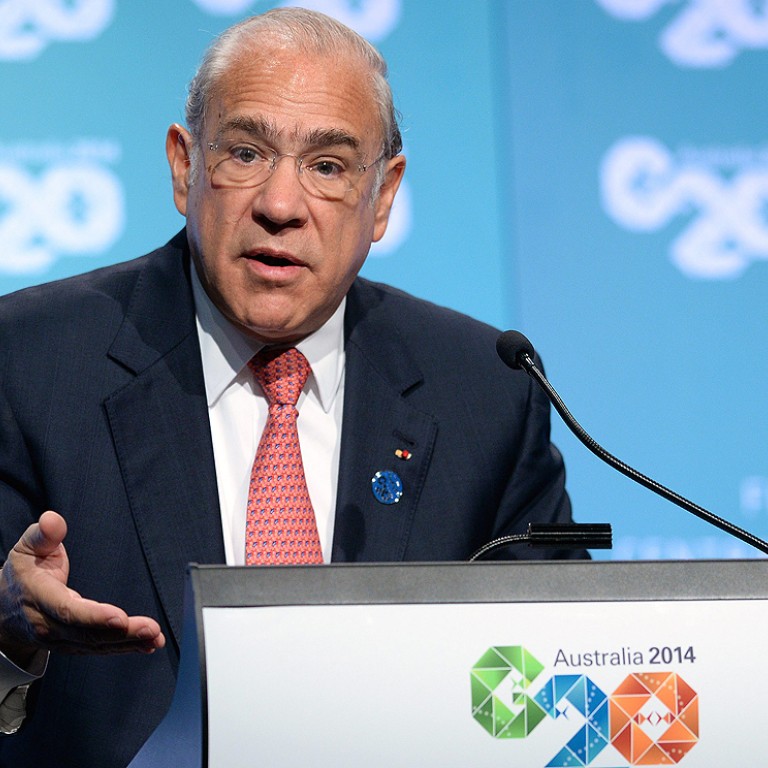
Global tax reform plan to crack down on tax avoidance is 'biggest in a century', OECD says
OECD proposals seek to close international loopholes used by companies to avoid tax
OECD chief Angel Gurria yesterday handed the G20 recommendations on the biggest changes to international tax rules in more than a century in a bid to tackle corporate tax strategies that are costing countries billions.

Gurria revealed that global efforts to crack down on tax avoidance had already identified €37 billion (HK$370 billion) from voluntary disclosure programmes involving 24 countries over five years, adding that "more will come".
The project "is about tackling aggressive practices which erode the tax base and artificially shift corporate profits to low- or no-tax jurisdictions", he said at the G20 meeting of finance ministers and central bankers in the Australian city of Cairns.
Australian Treasurer Joe Hockey, who is chairing the G20 meeting, said finance ministers had agreed to tackle base erosion and profit shifting "to make sure companies pay their fair share of tax".
"We have also agreed to increase transparency and crack down on tax evasion," he said.
He added that G20 nations were set to endorse the finalised common reporting standard for the automatic exchange of information between countries on tax issues today.
"This will allow us to identify offshore income of multinationals and high wealth individuals, so there will be nowhere to hide," Hockey said.
Some countries, including Australia, are set to implement the reporting standard in 2017, while others will start in 2018.
The first recommendations of the Base Erosion and Profit Shifting Project has seven goals that would help to ensure companies pay tax in the countries where they generate income.
They include proposals on closing loopholes that allow for the abuse of tax treaties and to neutralise the "cash boxes" of multinational businesses kept offshore in low-tax jurisdictions, which Gurria estimated at about US$2 trillion. They also seek to address the impact of the digital economy on tax.
Multinational firms, including digital giants such as Apple and Google, have been accused of using tax strategies that minimise their payments.
